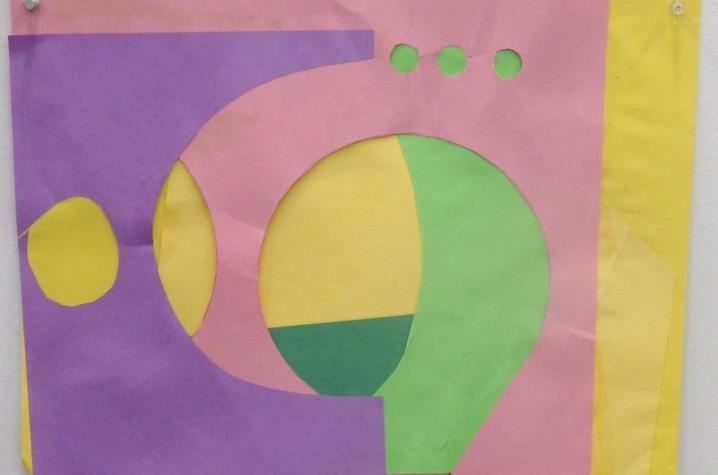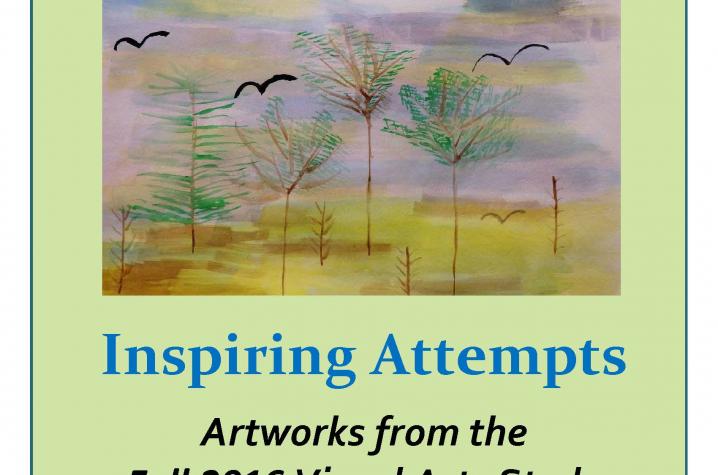Participants in UK Dementia Study Display 'Inspiring Attempts' at Art
“The exhibit is truly beautiful and shows the talent and effort of all of the participants in the study," said researcher Allan Richards, an associate professor of art education at UK School of Art and Visual Studies.
His research partner, Ann Christianson-Tietyen, agreed wholeheartedly. “We had a wonderful time this fall and the participants seemed to enjoy all of the art activities and the challenges involved. They produced beautiful works of art.”
Dementia is a decline of cognitive health that interferes with everyday life. Alzheimer's disease (AD) is the most recognizable form of dementia, but many other conditions can also affect cognitive health. There is no cure for AD, and almost all patients with dementia eventually require constant care from a caregiver or loved one. In 2015, there were 5.3 million Americans suffering from this devastating disease.
Beginning this past February, Christianson-Tietyen and Richards have been looking at how the visual arts can have a positive effect on people who suffer from mild to moderate dementia. The study also includes caregivers.
In the creation of art, multiple aspects of learning take place and multiple domains related to learning are engaged, including focus and concentration, problem-solving skills, tolerance to ambiguity, image and concept formation, imagination and visual-spatial thinking. In addition, feelings and emotional sensitivities are involved in producing a work of art, as well as important motor skills like hand-eye coordination.
By having study participants create art — painting, sculpture or collage — the researchers hope to enhance problem solving skills, focus/concentration and hand-eye coordination for individuals with dementia. They also hope to see an improvement in mood and in overall thinking, which would contribute significantly to quality of life.
The UK study was made possible through a grant from the Sanders-Brown Center on Aging Alzheimer’s Disease Center. To date the grant has funded the implementation of two eight-week programs for groups of individuals with dementia and their caregivers. Christianson-Tietyen and Richards' team also includes test administrators Derek Cryer, Elizabeth Jerrell, Olivia Lussi and Sarah N. Smith.
The UK School of Art and Visual Studies at the UK College of Fine Arts is an accredited member of the National Association of Schools of Art and Design and offers undergraduate and graduate degrees in the fields of art studio, art history and visual studies and art education.








